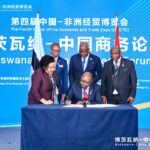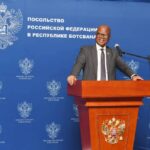Leadership in Botswana is deeply rooted in a culture of dialogue, consensus, and community engagement—principles that trace back to the traditional kgotla system. As modern business leaders rise through the ranks in corporate Botswana and beyond, many are drawing on the values and lessons instilled in these communal forums to guide their leadership styles. From humble village meetings to high-rise boardrooms, Botswana’s unique leadership journey offers valuable insights for current and future executives.
The kgotla is a traditional village assembly where community members gather to discuss issues, make decisions, and resolve disputes under the guidance of a chief or elder. What sets the kgotla apart is its inclusive and participatory nature—everyone has the right to speak, and decisions are made by consensus rather than force. This process fosters respect, transparency, and unity, setting a strong foundation for ethical leadership.
These values are highly relevant in today’s leadership landscape, especially in environments that require trust-building, team cohesion, and long-term vision. Leaders who grew up attending or observing kgotla meetings often develop strong communication skills, a deep sense of accountability, and the ability to listen actively before acting. These qualities are essential not just in politics or traditional leadership but also in modern corporate governance.
Many of Botswana’s top CEOs and entrepreneurs attribute their leadership approach to the early influence of the kgotla. They emphasise listening before making decisions, creating open channels for feedback, and respecting diverse opinions. These practices help create inclusive workplaces where employees feel valued and heard, which in turn boosts morale and productivity.
Moreover, the kgotla teaches patience and humility—two traits often missing in fast-paced, profit-driven industries. In a kgotla, decisions are not rushed. Instead, they are carefully considered with input from all stakeholders. CEOs who adopt this approach tend to foster long-term thinking, risk awareness, and strategic clarity in their organisations.
Integrity is another core principle nurtured through Botswana’s traditional leadership model. The public nature of the kgotla means that actions and words are held up to scrutiny. Similarly, successful leaders in the corporate space are expected to operate with transparency and earn the trust of their teams, investors, and communities.
Modern leadership also demands adaptability, especially in a rapidly changing global economy. Here, too, Botswana’s leadership culture provides an advantage. The ability to engage in constructive dialogue and navigate complex social dynamics prepares leaders to manage change effectively, negotiate with diplomacy, and remain grounded in times of crisis.
Leadership development in Botswana is increasingly embracing this blend of tradition and modernity. Business schools, mentorship programmes, and executive training initiatives are beginning to highlight the value of indigenous leadership models. By formalising the lessons of the kgotla and integrating them into corporate frameworks, Botswana is building a new generation of leaders who are both culturally rooted and globally competitive.
From the shaded trees of village gatherings to the glass-walled offices of multinational firms, Botswana’s leadership journey proves that timeless wisdom still holds power in the modern world. The kgotla may be an ancient institution, but its principles—dialogue, inclusion, patience, and integrity—are more relevant than ever in shaping ethical and effective leadership for the future.










